Learn more about the different headache types and find out how to manage them effectively. Our guide covers symptoms, treatments, and more. An occasional headache might be due to factors that affect estrogen levels. Sinus headaches occur and can cause sinus pressure. The causes of migraine are diverse and can cause pain in your head that lasts for extended periods. Some headaches are times more common in men, while a rare headache might present differently.
The truth is that headaches are a more complex phenomenon than you might think. They occur in different forms and intensities, and can often symptomatic of some deeper problem. Since ailments of the head, neck, and jaw are the specialty of the Head and Neck Centers of Excellence, we decided to compile a definitive list of the different headache types as well as headache treatments – and perhaps even dispel some myths about these common pains as well.
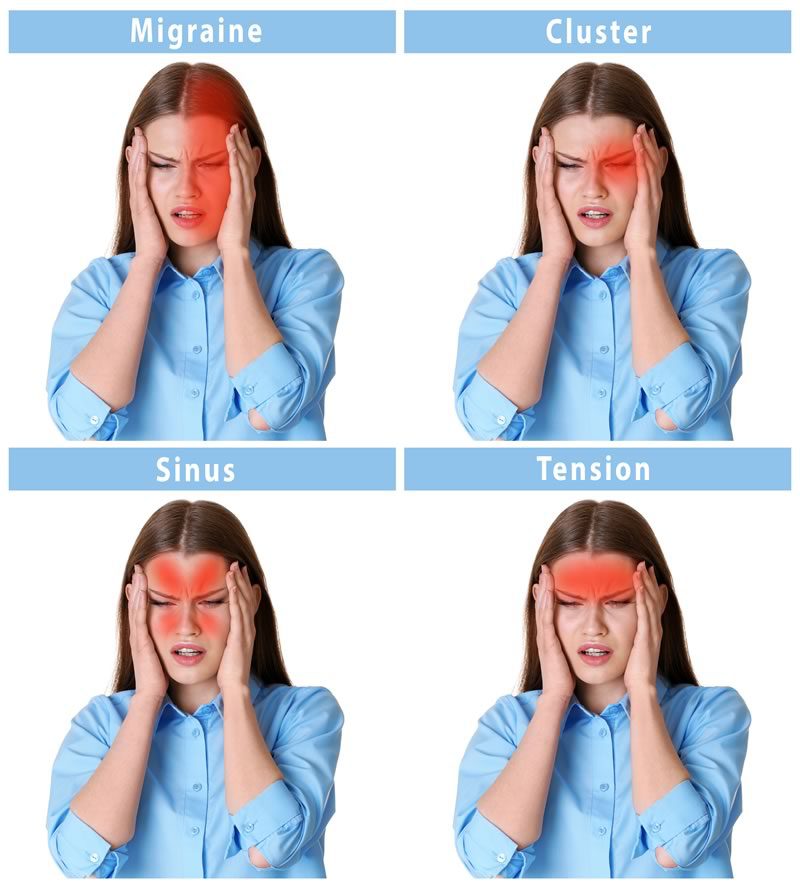
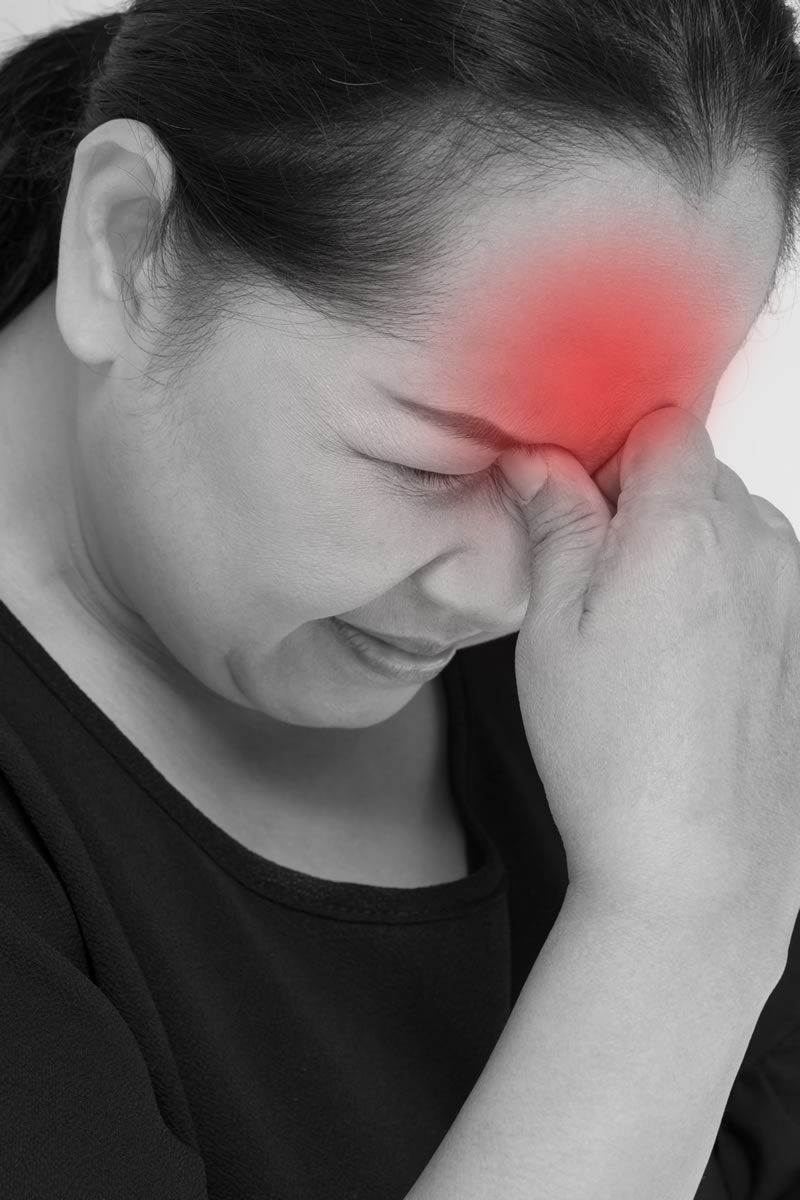
Tension-Type Headaches
Tension headaches are usually the most common type of headache. They can occur as a result of muscular tension in the head, jaw or neck, often caused by stress, muscle tension or poor posture from hours spent stooped over computer screens and smart devices.
They manifest as dull aches of varying intensity, usually covering the entire head, particularly the forehead area. There is usually no throbbing sensation present but there is usually tenderness in the neck and shoulder muscles.
Tension headaches can vary in intensity, and are helped with simple analgesics, massage, or gentle spinal manipulation. These are not exactly primary headaches, however. Primary headaches are those that are not a manifestation of some other acute or chronic conditions. They occur directly as a result of temporary problems in the cranial muscles and nerves. Secondary headaches, on the other hand, are those that arise from underlying factors that sometimes have little to do with the head itself.
Tension headaches, although seemingly benign, fall into the latter category because they represent some deeper lifestyle problems. If you are experiencing tension headaches, your body is telling you that you are under too much stress or that you are placing a strain on the muscles of your head, jaw, neck or shoulder muscles through bad posture and unconscious tension. Care of the temporomandibular (TMJ) area, head, neck and upper back area, tension headaches can be eliminated through conscious lifestyle posture, myofascial release, spinal manipulation and lifestyle changes.
Cluster Headaches
Cluster headaches can be painful, the cause of which is not fully understood. They occur as a severe burning or piercing pain around one eye or on one side of the head. They can be accompanied by other symptoms such as swelling, redness, nasal congestion, and eye tearing.
They get their name from the fact that they tend to occur in a series or in clusters. People experience three to four of them in a day, lasting anywhere from fifteen minutes to three hours. There is a brief reprieve after one headache resolves, and then another soon follows. After several days of this, the symptoms disappear, only to resurface unpredictably months later. There is no specific ‘trigger’ that brings these headaches on, and they seem to appear out of nowhere.
It does appear that these headaches are caused by some internal problem, perhaps relating to the sinuses or even ocular nerves, however, at this point, it is still only speculation. Irregularities in the body’s biological clock, controlled by the hypothalamus, are sometimes cited as causes, suggesting an underlying lifestyle problem. Many just treat the pain as it comes without taking a hard look at these underlying lifestyle issues. Looking at diet, rest cycles, exercise, spinal alignment and stress levels can sometimes play a role in reducing or eliminating pain. If you experience a thunderclap headache or chronic headaches, it’s crucial to seek immediate medical attention.


Migraine
The debilitating, increasingly common pain that we call a migraine is a primary one that arises from neural and vascular disturbances in the head. Many people who merely experience particularly intense tension headaches casually describe their pain as ‘migraines’. However, migraine headaches are something else entirely. And, if you’ve ever suffered from one, you will have no doubt experienced the difference. Migraine headaches may cause intense throbbing pains that seem to emanate from deep within the head, limiting and sometimes even completely interrupting the ability to carry out daily functions. Symptoms like nausea, light and sound sensitivity, visual disturbances (known as auras), as well as nausea and vomiting, are all common co-occurring symptoms.
Whereas common tension headaches are clearly muscular in origin and appear to occur on the surface of the head, migraines seem to rise up and out from deep inside, suggesting a deep disturbance in the complex circuitry of the central nervous system. They may occur as a result of a genetic predisposition. But, there is almost always a very definite trigger that sets these pains off. Stress and lack of sleep are common ones. Essentially, migraines happen when nerves branching off from the brain stem are overstimulated, resulting in dilated blood vessels and a sudden increase in blood flow to the head. There are actually a number of stimuli that can cause this effect, which is not dissimilar – though it is more sustained – than what happens with those infamous “ice-cream headaches”.
What is less known is that migraines, like tension headaches, can often be caused by chronic tension in the jaw, neck and shoulders. Often, we hold tension in our shoulders or neck or clench our jaws for long periods during the day – all unconsciously. We are not aware of any pain and tension until the migraine arrives. With this in mind, it is increasingly evident that headaches can be treated and cared for through a gentle regiment of chiropractic adjustments, physical exercise, nutrition trigger modification and stress reduction. Migraine headaches can be managed effectively with a comprehensive treatment plan, which may include pain relievers and adjustments to lifestyle factors.
Allergy or Sinus Headaches
Very often, headaches that are diagnosed as migraines are really sinus headaches. Sinus headaches are treated as a result of a build-up in pressure in the front of the head, resulting from congested sinus passages. This congestion could be the result of a sinus infection, cold or an allergic reaction. Symptoms may include a throbbing headache or pressure in the sides of your head, and it can affect one side of the face. Headaches typically occur when there is congestion in the sinuses, leading to increased sinus pressure. Antihistamines and decongestants, combined with painkillers, can alleviate these headaches if they are temporary. If they become chronic, then cranial work, myofascial release and spinal therapy can help.
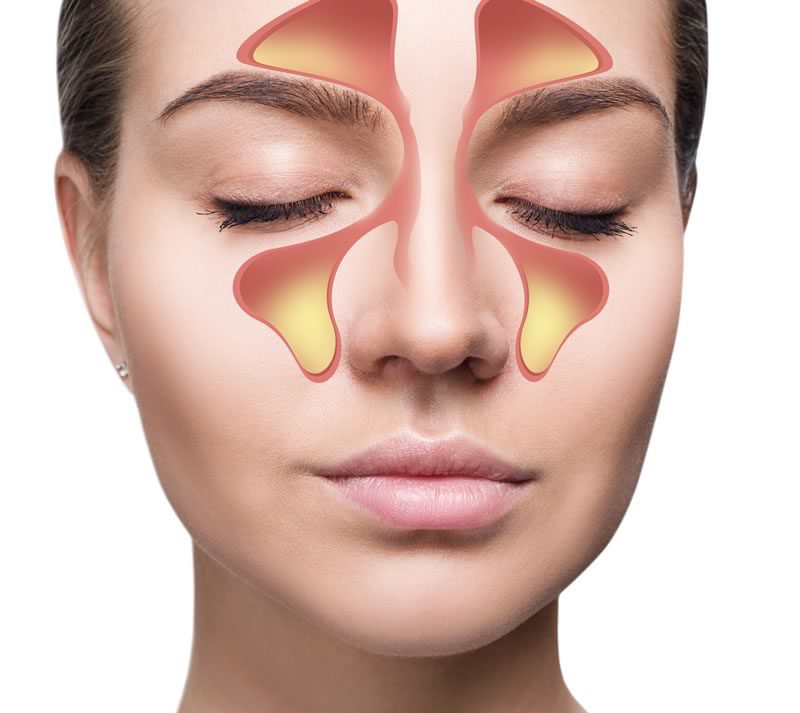

Hormone Headaches
Menstrual migraines are very common among women. They result from estrogen fluctuations that occur as a result of the menstrual cycle, birth control, and pregnancy. Although they can be quite painful, these headaches are benign and fleeting. For many women, they form an accepted part of their monthly cycles. Headaches may occur due to estrogen levels affecting the frequency and intensity of the pain. Types include menstrual migraines, which are often accompanied by a throbbing pain on one side of your head. Headache and other symptoms such as nausea can vary, but for most women, these headaches are a common headache experience. Although over-the-counter pain relievers are commonly prescribed to manage them, they can also be alleviated through relaxation techniques and the practice of yoga, spinal repositioning and nutritional/functional medicine.
Caffeine Headaches
Coffee is consumed in such massive amounts in our culture that we forget the effects it can have on our health. Caffeine has been shown to have some positive effects on health as a result of its high antioxidant content. Nevertheless, it is still a stimulant, and its overuse can cause problems. Caffeine works by increasing blood flow to the brain. This is what wakes us up and makes us feel more alert when we drink coffee. This can also cause headaches, however, as anyone who has consumed large amounts of coffee in a day can attest. If, after making a habit of consuming a significant amount of coffee, you suddenly stop completely, this can also lead to headaches. The solution is to regulate your caffeine intake.


Exertion Headaches
Hard manual labour and intense exercise can both lead to exertion headaches. This specific headache type occurs due to increased blood flow to the head vessels, resulting in acute throbbing that goes away relatively quickly. If these occur chronically, however, it could also be as a result of temporomandibular disturbances. When we exert ourselves, we tend to clench our jaws and tense our shoulders and neck muscles. If you experience headaches regularly due to intense physical activity or manual labour, it may be worth consulting a doctor may help with managing them. Headaches typically happen in these scenarios, and understanding their cause can help in choosing the right treatment. While headaches are a rare result of most exertion, frequent occurrences might require a visit to a neck pain specialist.
Hypertension Headaches
High blood pressure can also lead to headaches. These usually occur on both sides of the head and intensify with activity. As the pain is linked to the blood flow, it manifests as a pulsating sensation. It can also be accompanied by visual disturbances, numbness, tingling, nosebleeds, shortness of breath, and chest pain. If you have already been diagnosed with high blood pressure, the cause of these headaches is usually easy to discern. If you are not aware of being a hypertension sufferer and you experience these types of headaches, it may be an indication that you have the condition and should seek urgent medical advice. Either way, you should consult a physician immediately.
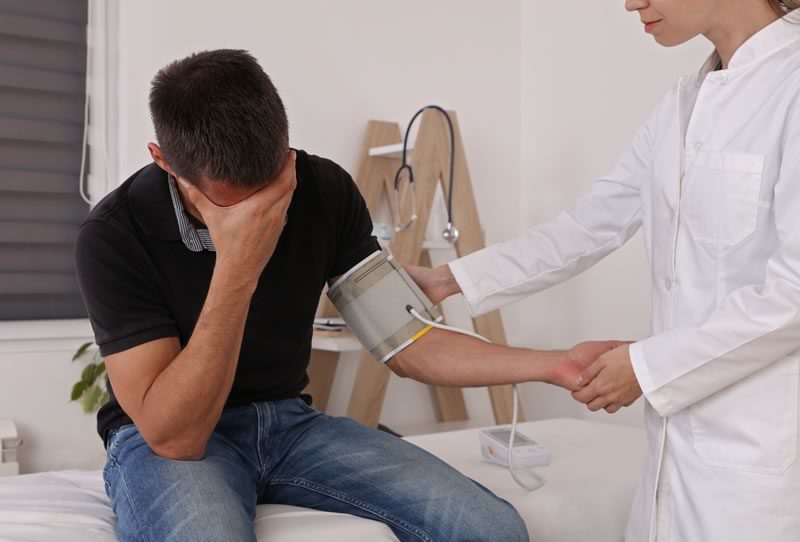
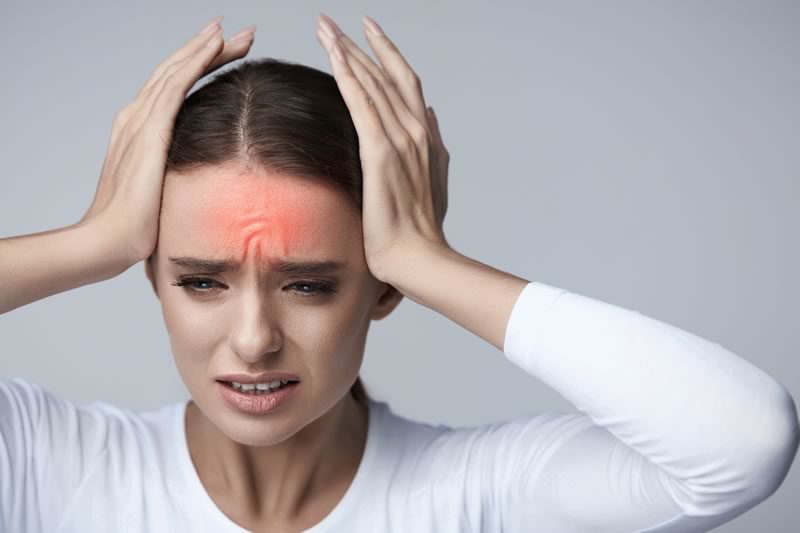
Rebound Headaches
Rebound headaches result from the overuse of certain medications. They occur as dull, tension-type headaches or, in some cases, as more intense, migraine-style pains. Ironically, rebound headaches often arise as a result of the overuse of over-the-counter pain medications, such as ibuprofen, aspirin, and naproxen. If you are using these medicines too often, that is an indication of a much deeper problem, and rebound headaches appear to be your body’s way of telling you that, far from solving the issue, you could be making it worse. You could try taking a preventive medication of some kind. But, it might be better to consult a medical practitioner so as to locate and treat the underlying cause of the pain. There is very likely an issue in your jaw, neck or shoulder muscles that may be stimulating constant headaches, which could be one of many different types of headaches. These headaches can affect anyone but are three times more common in those overusing medication. Consultation with a neck doctor would be advisable if headaches that last are persistent.
Post-Traumatic Headaches
Headaches very often occur after an accident that has resulted in head trauma or damage to the muscles, nerves, and bones in the neck and shoulders. They can become chronic, but most often start to fade in frequency as the original injury heals. Physical therapy can help accelerate healing if the headaches result from whiplash or other injuries to the neck, discs, upper back and shoulders.

When Should Headaches be a Cause for Concern?
It’s important to remember that any pain you experience is your body trying to send you a message that something is not right. It could be your posture, your lifestyle, your hormones or your sinuses that are the problem. Always listen to your body. So, when you do experience a headache over and over again, don’t just cover it up by taking a painkiller. Rather, think about what the pain may mean. What needs your attention? What needs to change? This does not necessarily indicate that a doctor needs to be consulted, however. It is time to consult a professional when the headaches recur for more than 7- 15 days out of the month. You may need a doctor, particularly a headache specialist, to find the root problem and help you to eliminate it.
The Head and Neck Centers of Excellence are dedicated to the treatment of head, neck, jaw, and shoulder complaints. With an emphasis on getting to the underlying cause, then correcting and preventing in a holistic manner, rather than symptom-based treatment, we use gentle specific spinal movements to relieve stress and tension on delicate nerve tissue, myofascial release techniques, and headache treatment to eliminate chronic head, neck, TMJ, upper back and shoulder disturbances. Our methods are designed to address various headache types, ensuring a holistic solution to your discomfort. Contact us for an appointment.
